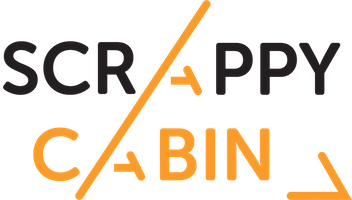Acquire a Website and Migrate its Content
Objective: Rapidly increase organic search traffic, as well as traffic from a range of other channels, through the acquisition of a relevant website, and consequently their keyword rankings.
How: This is my #1 favorite tactic to roll out when I’m working on a project with a brand new domain. It’s seriously powerful for scaling up traffic growth in a short period of time. Not only that, but it can actually work out to be seriously cost-effective.
Before I go into an example of where I’ve done this previously, here’s the basic process involved:
- Scope out websites that rank for a large number of long tail keywords relevant to your buyer persona.
- From the list of websites, drill down on ones that could be potential acquisition targets.
- Approach the owners of the websites to see if they’re interested in selling and get valuations.
- Come to an agreement with one of them and acquire their web property(s).
- Migrate over all of the content from their website into your existing domain and set up canonical tags to point to your version of the content.
- Once all the content is migrated, set up 301 redirects to push the rest of the website’s content and backlinks to you.
- You’ll now absorb all of the acquired domain’s traffic while getting an additional SEO boost across your existing content for the large influx of backlinks you’ve just added.
The key here is picking the right website to acquire. In order to find the right acquisition target, you’ll want to get an idea for what your main buying criteria will be. This is usually made up of the following:
- Current overall web traffic.
- Current organic search traffic.
- Number of pages on the website.
- Number of backlinks/linking domains.
- Specific keyword rankings (i.e., is the site ranking for a very valuable keyword to your business).
- Relevancy of the content to your audience (there’s no point buying content that you can’t use).
- How much revenue does the website generate?
- Extended audience size (e.g., do they also have a large email subscriber list?).
- Price.
Anyone that owns a website where organic search is an important channel will know that creating content and earning backlinks costs a lot of money. In a recent e-commerce side-project of mine, we were spending roughly $450 per blog post we created, which included custom imagery (important for our niche).
In the early stages of a campaign where you want to build out a ton of content, $450 per blog post can really start to add up - more importantly, it meant we had to spread content production over a longer period of time, and ultimately wait a longer time to see results.
We scoped out an acquisition target that had over 500 articles, all hyper-relevant to our audience, as well as around 3,000 backlinks from 550 different domains. At the price we negotiated for the sale it worked out as the following cost:
- $31.70 per article.
- $5.28 per backlink.
- $28.28 per linking root domain.
That's some huge savings. Not to mention the 60,000 monthly visits from organic search that we captured.
While there's often a lump sum involved with this play, the benefit you see from economies of scale can be huge, and that's not even factoring in the additional benefits you'll see across your existing content - which is very significant.
Once we'd gone live with the migration, not only did we absorb the traffic from the acquired site, but we saw massive lifts in our core target keyword rankings that we were going after - on average they jumped two pages.
The above graph shows the uplift in organic traffic after just 40% of the content was migrated over (this is just with canonical tags, too!). Trust me when I say it's very difficult to see this kind of growth in just a couple of months on a new domain.

